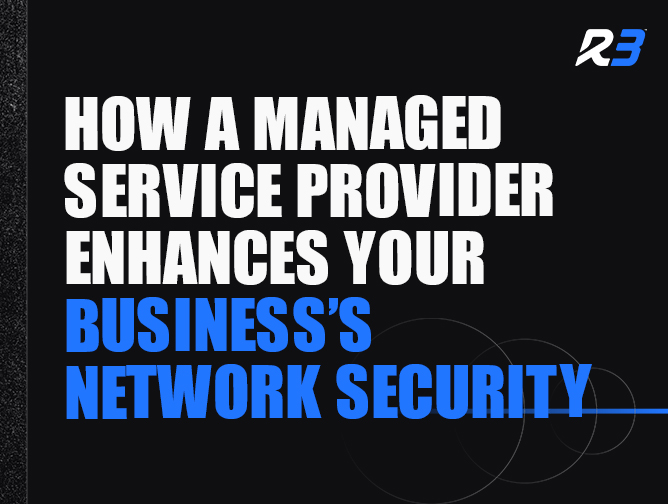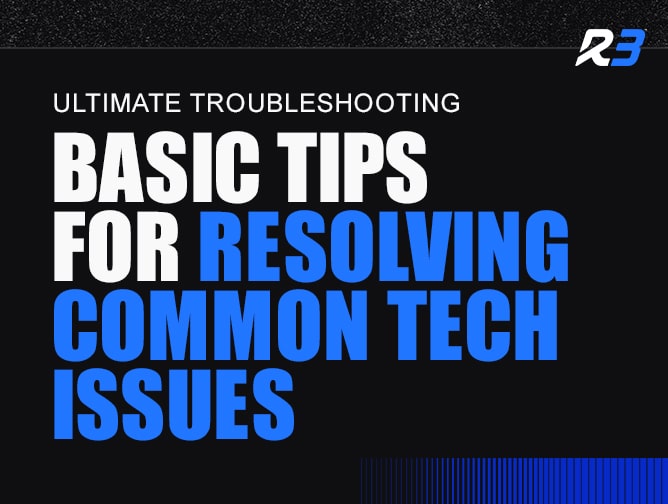Network security is essential for businesses of all sizes to protect sensitive data and maintain the integrity of their systems. An IT managed services provider (MSP) can play a vital role in helping businesses achieve strong network security. As IT leaders are increasingly turning to Managed Service Providers (MSPs) to bolster their defenses and manage their network security they have found that this partnership can yield significant benefits, reducing risks and enhancing operational efficiency.
When it comes to network security, an MSP can help in a few ways, here’s an exploration of the top ways an MSP can transform your network security:
- Regular maintenance and monitoring
One of the primary roles of an MSP is to ensure that a business’s systems are running smoothly and efficiently. This includes performing regular maintenance tasks and monitoring the network for potential issues. By proactively identifying and addressing potential problems, an MSP can help to prevent security breaches and ensure that the network is always running at its best. In this way. instead of reacting to security incidents, MSPs employ continuous monitoring solutions to identify and mitigate threats before they escalate. - Security assessments and audits
An MSP can help businesses to identify and address vulnerabilities in their network security. This may include performing security assessments and audits to identify potential weaknesses, as well as providing recommendations for improving security. - Regular Software Updates and Patch management
Software vulnerabilities are often exploited by cybercriminals to gain access to a network. An MSP can help businesses to stay on top of patches and updates, ensuring that all software is kept up to date and secure. - Security training and awareness
An MSP can provide security training and awareness to employees, helping them to understand the importance of network security and the role they play in protecting the business. This may include training on how to identify and avoid phishing scams, as well as best practices for creating strong passwords and protecting sensitive data. - Disaster recovery planning
In the event of a security breach or other disaster, an MSP can help businesses to recover quickly and effectively. This may include developing and implementing a disaster recovery plan, as well as providing the necessary tools and resources to ensure that the business is able to recover as smoothly as possible. - Managed firewall and intrusion detection
An MSP can help businesses to implement and manage a firewall, which is a crucial component of network security. A firewall helps to protect against external threats by controlling incoming and outgoing network traffic based on predetermined security rules. An MSP can also provide intrusion detection, which helps to identify and alert businesses to potential security threats. MSPs deploy IDS to detect and alert on potential threats, providing real-time insight into your network’s security posture. - Expertise On-Demand
With an MSP, you have access to a team of specialized experts who stay abreast of the latest security trends and can apply this expertise to protect your network. - Comprehensive Risk Assessments
Regular risk assessments can reveal vulnerabilities within your network, allowing for proactive remediation strategies to be implemented. - Advanced Security Tools
MSPs invest in state-of-the-art security tools that many businesses couldn’t otherwise afford, providing robust protection against a variety of threats. - Tailored Security Strategies
Your business isn’t generic; neither should your security strategy be. MSPs can design custom solutions that align with your specific needs and risk profile. - Data Backup and Recovery Plans
In the event of data loss due to a security breach, MSPs provide solid backup and recovery services to minimize downtime and protect your information.

Download 6 Common Cyber Attacks & How to Prevent them
Check out our free eBook on 6 Common Cyber Attacks and How to Prevent them.
- Regulatory Compliance Management
An MSP ensures your network adheres to relevant regulations, helping you avoid fines or legal issues related to data breaches. - Scalable Solutions
As your business grows, your security needs will evolve. MSPs can scale your security measures to match your company’s development. At R3, our Strategic Technical Advisory Group (STAG), will provide a full audit of your tech stack, team, and architecture to help right size your infrastructure without sacrificing security or efficiency. - Incident Response Planning
In the face of a security threat, having a clear incident response plan can limit the damage. MSPs develop and test these plans to keep you prepared. - Endpoint Protection
Every device is a potential entry point for threats. MSPs manage endpoint security to protect your network from each device. - VPN Management
For remote access, MSPs can implement and manage Virtual Private Networks (VPNs) that provide secure connections to your network. - Multi-Factor Authentication (MFA)
MSPs implement MFA protocols to add an additional layer of security for user access, protecting against credential compromise. - Mobile Device Management
With the rise of BYOD (Bring Your Own Device) policies, MSPs can help secure mobile devices that access your corporate network. - Network Segmentation
Segmenting your network can restrict attacks to a smaller segment, mitigating the spread. MSPs can help set this up efficiently. - Security Policy Development
Creating and enforcing robust security policies lays the foundation for your business’s security culture, something MSPs assist with. - Continuous Improvement
MSPs don’t just set and forget; they’re involved in a continuous cycle of evaluating and improving your network’s security measures.
Today’s IT leaders must acknowledge that network security requires ongoing, strategic, and expert attention. Partnering with an MSP offers a way to achieve this without the overhead of expanding in-house teams. An MSP addresses all aspects of security, from prevention and detection to response and recovery, freeing your business to focus on growth and innovation, secure in the knowledge that your network is in expert hands. By providing regular maintenance and monitoring, security assessments and audits, patch management, security training and awareness, disaster recovery planning, and managed firewall and intrusion detection, an MSP can help businesses to protect their systems and sensitive data from potential threats.
Remember, in cybersecurity, there is no one-size-fits-all solution. It pays to have a partner like an MSP, who not only understands this but lives and breathes network security, ensuring customized and comprehensive protection for your business.







